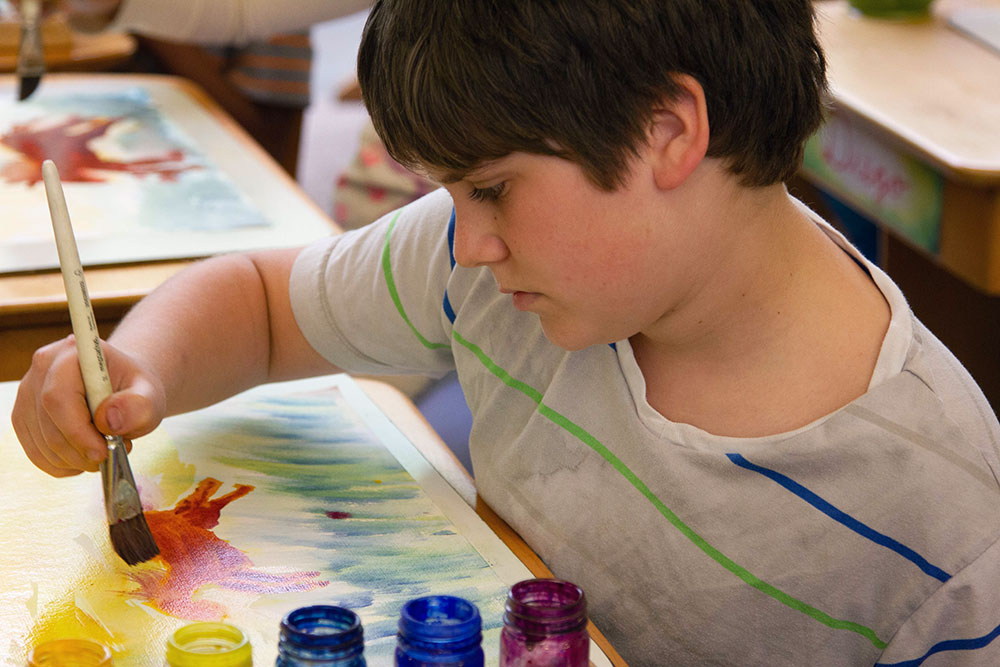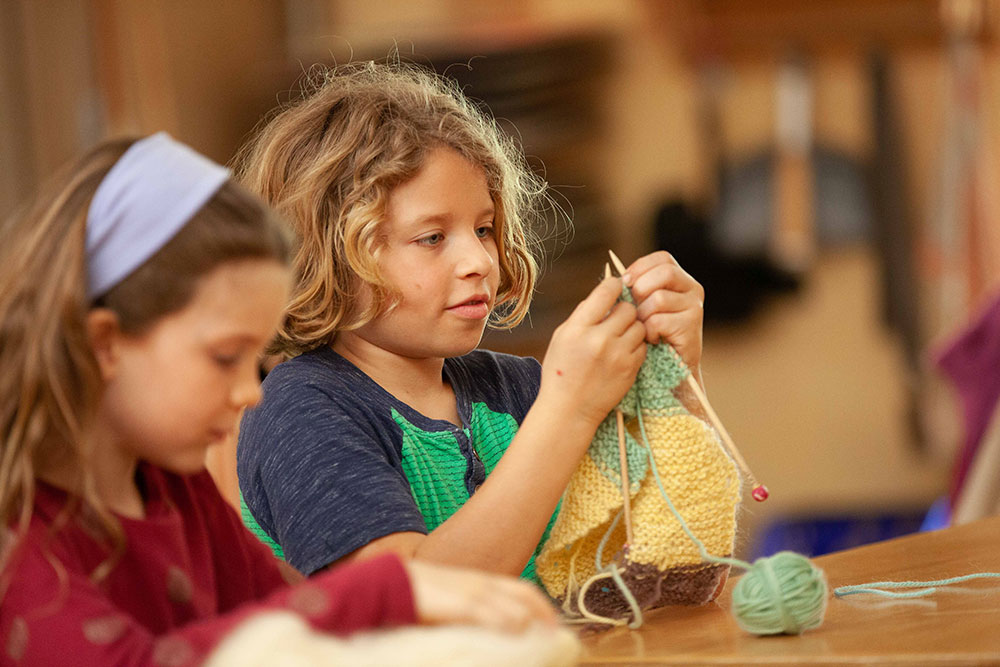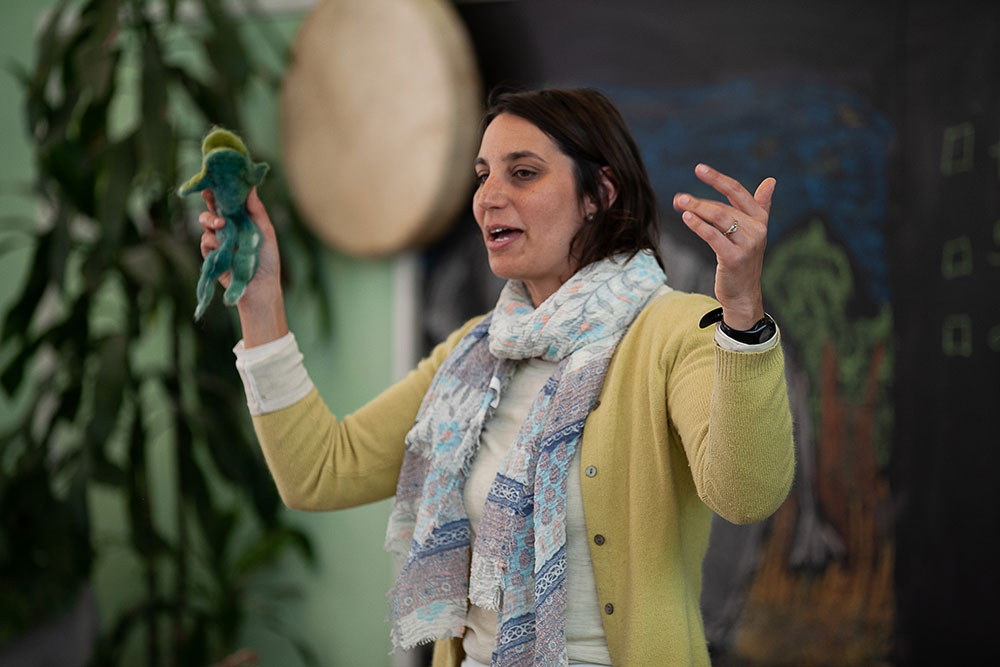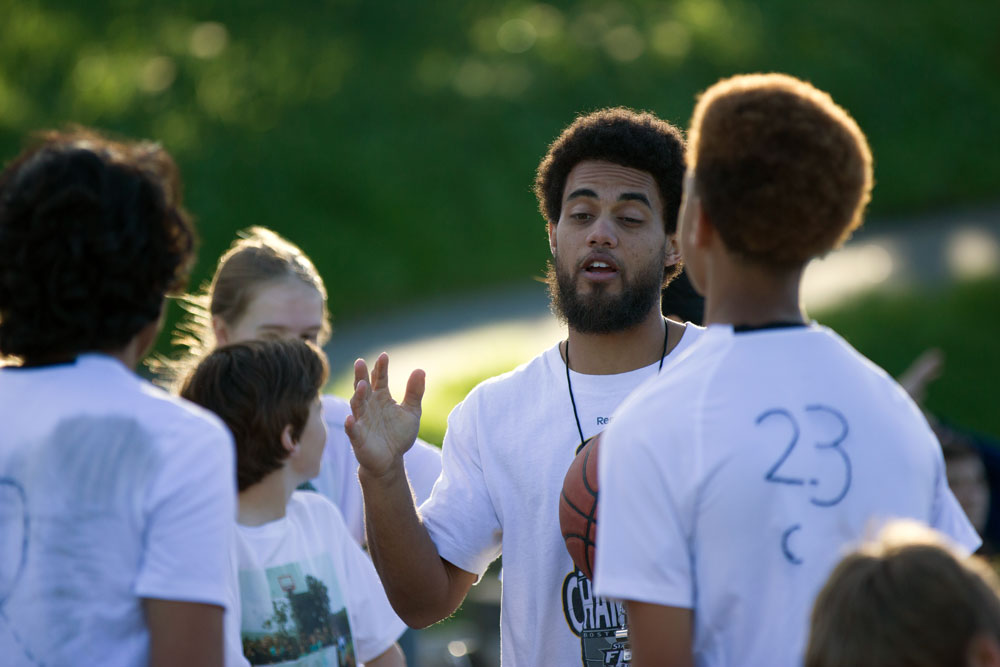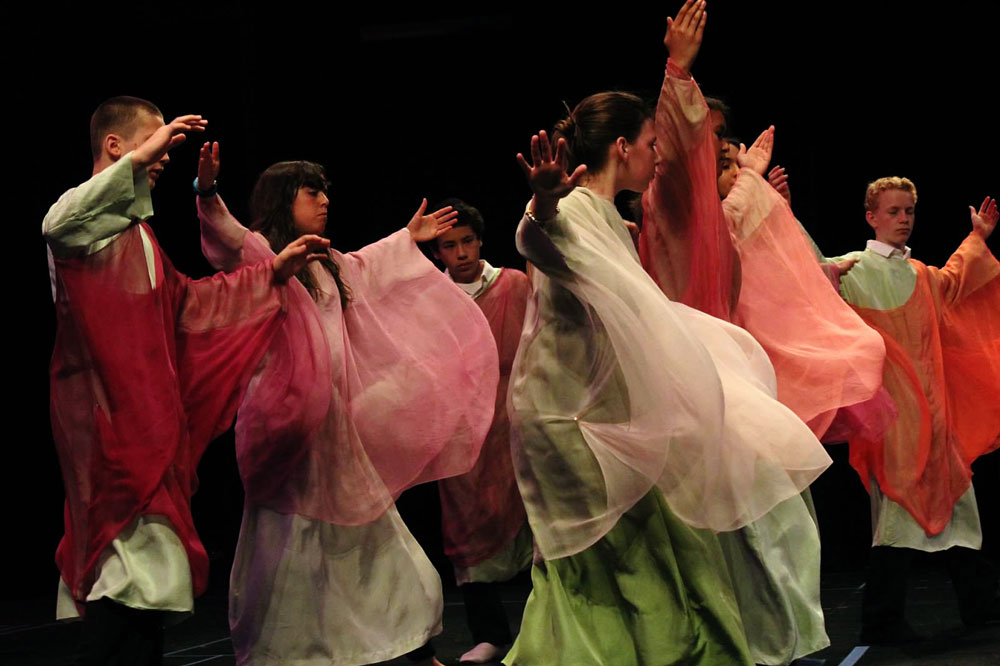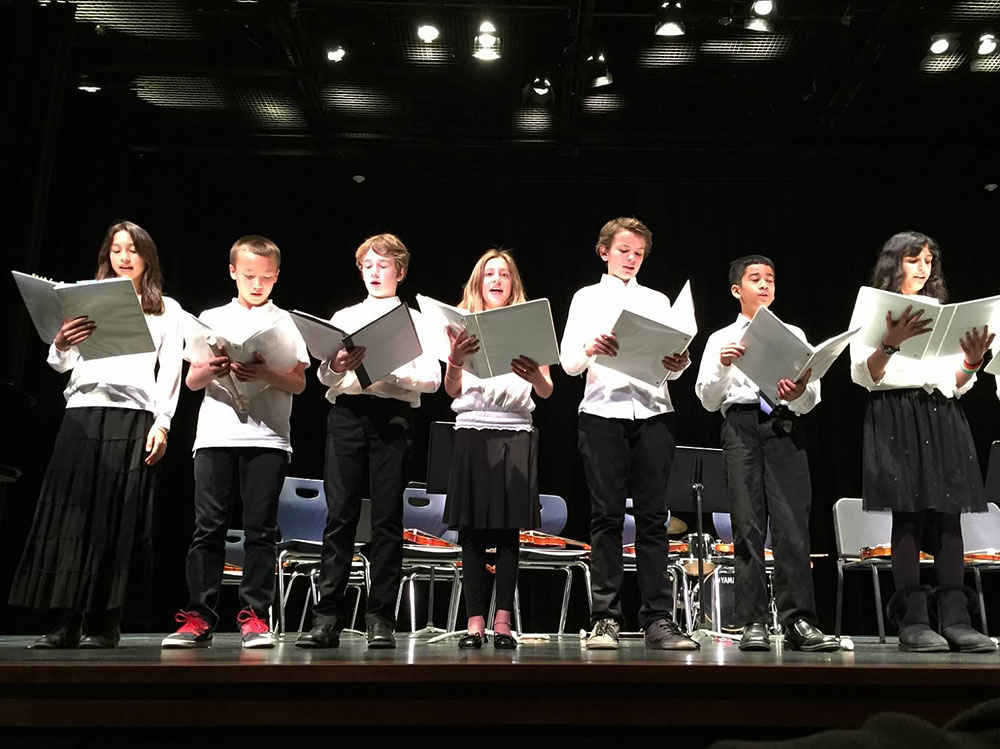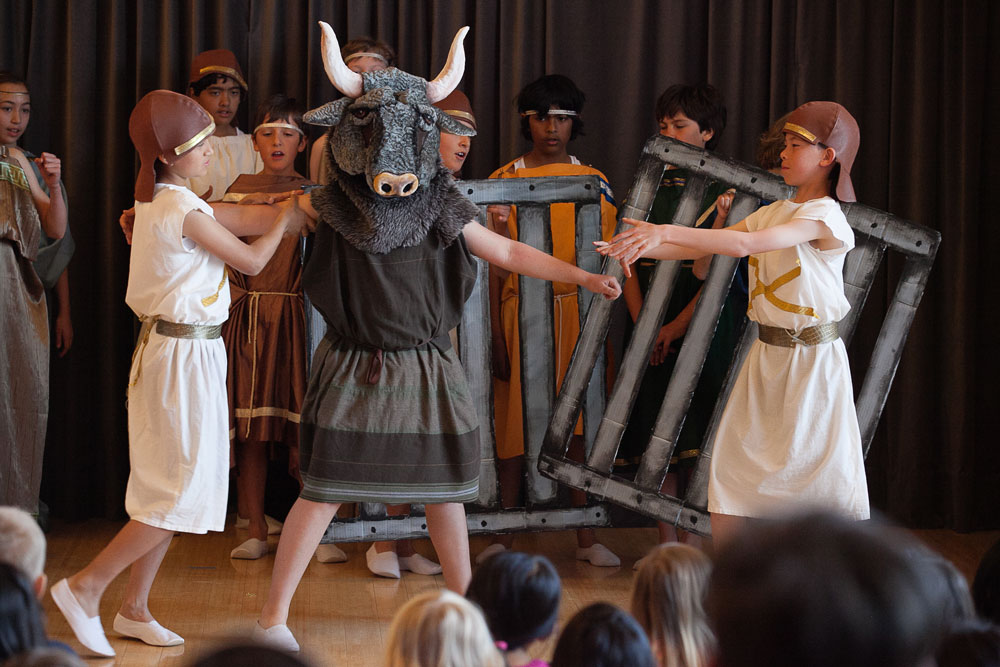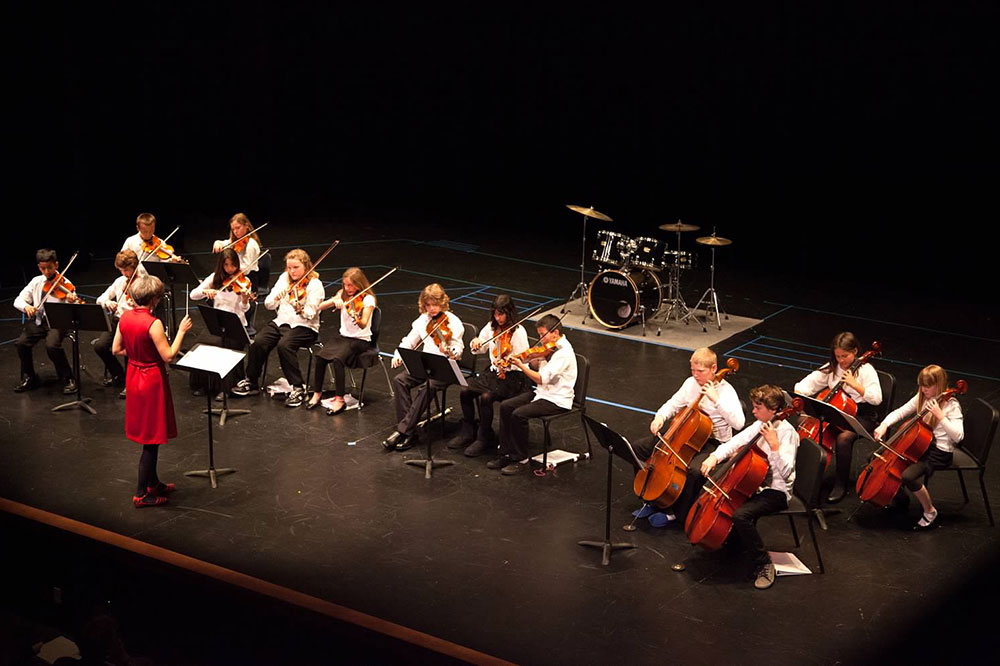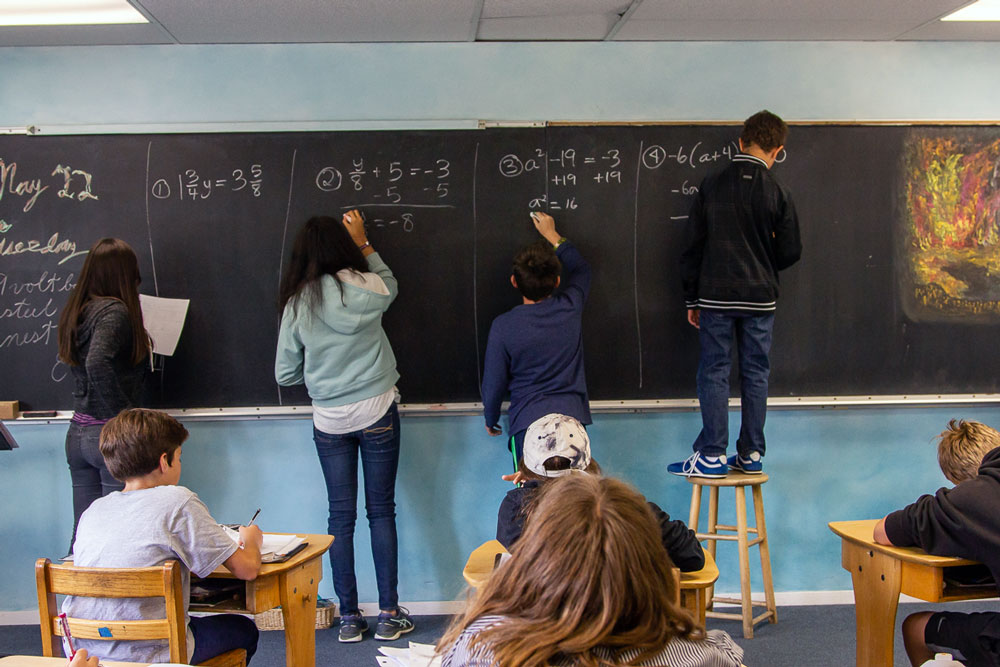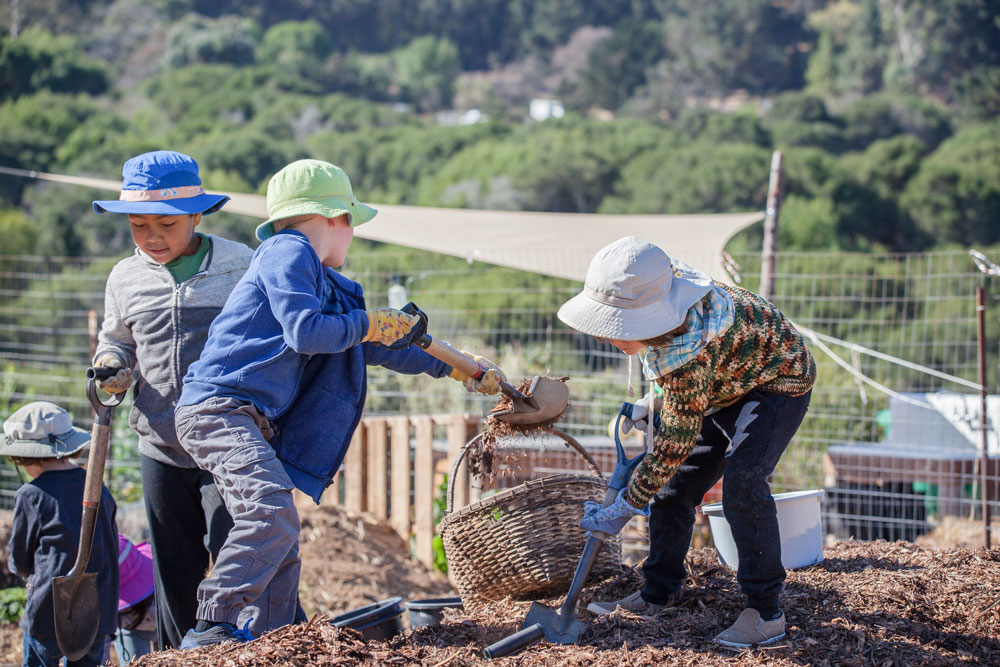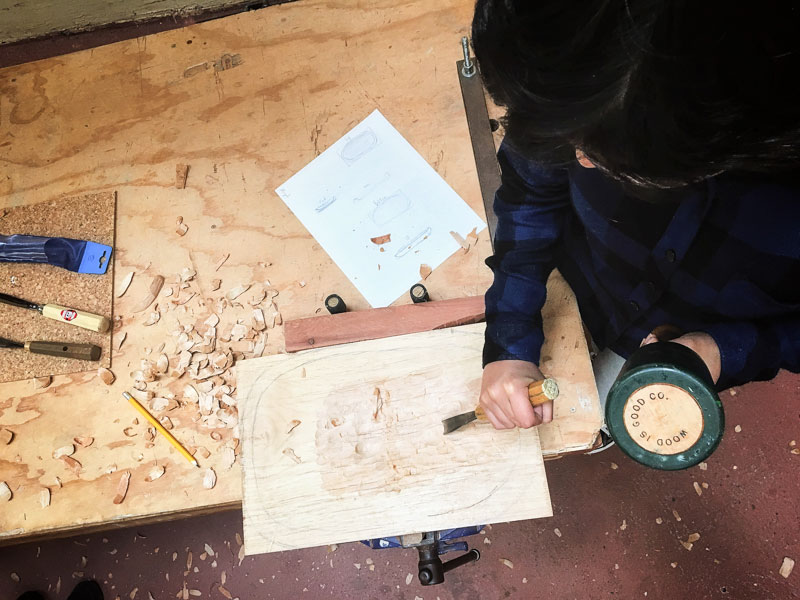What others consider “extracurricular,” we consider essential to becoming a well-educated and well-rounded human being. A variety of musical, movement and visual arts, as well as practical skills, are woven into the fabric of our students’ daily lives.
The arts awaken imagination and creative powers, bringing vitality and wholeness to learning. They have intrinsic value — giving children joy, providing an alternative area for learning, growth, and mastery, building multiple intelligences, and setting the stage for later life satisfaction and connection. WCCS parents don’t need to look for after-school enrichment classes; enrichment is built into our curriculum!
These special subjects are also valuable as tools to reinforce academic learning. Classes are intentionally integrated with the main lesson learning of each grade. So while a 1st grader is learning to count, he or she is also learning to knit, which gives them a practical application and lots of practice at counting.
Subject teachers are also essential members of the team that “holds” and guides each child and class, working closely with the main lesson teacher for each grade. They bring their experience across grades, know the families with children in multiple grades, and are important additional relationships for the children.
“If you’ve had the experience of binding a book, knitting a sock, playing a recorder, then you feel that you can build a rocket ship-or learn a software program you’ve never touched. It’s not bravado, just a quiet confidence. There is nothing you can’t do. Why couldn’t you? Why couldn’t anybody?” — Peter Nitze, Waldorf and Harvard graduate, and Director of an aerospace company
Art
Wet-on-Wet Watercolor Painting, Form Drawing, Beeswax and Clay Modeling, Perspective Drawing
(Grades 1-5)
The visual arts are completely integrated into our main lessons and core subject areas. Painting, drawing and modeling, whether illustrating a myth or reinforcing a scientific principle, allows students to link deeper meaning to lesson content, builds focus and encourages creativity. Time spent on visual arts also improves fine motor skills and fuels young imaginations.
Handwork
Knitting, Felting, Crochet, Embroidery, Hand Sewing, Pattern Making, Machine Sewing
(Grades 1-5)
The Handwork curriculum is broad and intentionally integrated into the curriculum by grade. For example, as the 8th graders study the Industrial Revolution, they get the experience of learning to sew on a sewing machine in their handwork class, making this period come alive. Students learn to prepare and care for their materials and develop an eye for color and design as they create practical and beautiful objects with a purpose — a case for their flute, an embroidered project bag or a pair of socks.
Handwork improves fine motor skills, which has a direct correlation to improved cognitive functioning. Knitting, for example, reinforces left-right brain connection and helps to build math skills. It also teachers persistence and the healthy life habit of taking a project from concept to completion.
Foreign Language
Spanish
(Grades 1-5)
The goal of the foreign language program is to develop the child’s ear for language, flexibility of speech, and appreciation for other cultures. And yet, many of our children are speaking Spanish and ready for more advanced classes by the time they get to high school. We practice an immersion approach, that means Spanish is taught orally only for the first three years through games, songs, folk tales, dialogues, puppetry, and plays. In this way a broad foundation of vocabulary and pronunciation is built.
Beginning in fourth grade, we introduce writing and reading, after which grammar and reading comprehension skills are built systematically over time. History, geography, biography, cooking, and drama are all components of the upper grades language program. The language teachers introduce subjects relevant to the current main lessons of a given grade and skills appropriate for that age.
Movement/Games
Group Games (Grades 1-5); Olympic Pentathlon (5), Sports (6-8), Soccer and Basketball (6-8) Bothmer Gymnastics
Joyful movement is a vital aspect of physical education at WCCS. In the grades, coordinated group activities and choreographed movement help to build physical agility and a sense of internal rhythm while developing spatial awareness and left-brain/right-brain coordination. Activities and movement change from year to year, consistent with the development of the child. For example, individual skills are honed and celebrated in as the students prepare for the Pentathlon, where recognition is given for grace and focus as well as the more traditional values of speed or strength. The cognitive impacts of these activities have a lasting and positive effect on overall health and well being, as well as supporting the ability to organize and process intellectual concepts.
Eurythmy
Grades 1-5
Eurythmy, a movement art akin to dance or Tai-chi, is an integral part of our curriculum. The aim of eurythmy is to educate the children to be active and agile in their feelings, their thinking, and their doing, thereby creating harmony and integration between head, heart, and body. Students experience artistic renderings to classical music and poetry, explore story and drama, dexterity and coordination, as well as develop concentration and spatial relations.
Music
Grades 1-5
Music is woven through the curriculum and creates a familiar rhythmic foundation for the education of the child. Music also plays an important part in school festivals, plays, and assemblies. When students enter the Grades, in addition to singing daily with their Main Lesson teacher, students participate in music lessons, where their innate sense of musicality is thoughtfully cultivated and they are exposed to all aspects of musicianship, including reading music and music theory. In 1st grade students learn to play Choroi flutes. Our 4th grade students select a string instrument, choosing from violin, viola, cello or double bass, and participate in string orchestra. Private music lessons are required weekly to support learning. In 7th grade, ukulele is another option for continuing to develop one’s musicality.
Drama
All students participate in an annual class play
(Grades 1-5)
For each grade, the class play is an important part of our curriculum, with roles chosen to develop each student’s innate gifts and to support curricular themes for that year. You will witness the high level of speech work that is cultivated and watch skills develop over the years. With each production, the class learns to work together as the final piece grows from a short 10-minute skit in the first grade to something as complex as a 90-minute Shakespeare play in eighth grade.
Strings
Grades 4-5
Music is an essential part of our education. In Grade 4 students begin to play in String Orchestra, where they develop their musicianship through playing together on the violin, viola, cello, or double bass. Weekly private music lessons are required at this age to support the student’s individual progress on their instrument.
Math Specialist
Grades 4-5
At every stage of development, our curriculum relates mathematics to the child’s world. Our middle school math program is supported by a Math Specialist who teaches additional math classes to the older students each week. Math continues to be integrated with main lessons to bring new insights into the quality of numbers. In 7th and 8th grades, we challenge our students with increasingly complex geometry and algebra. Our students are ready for the rigors of 9th grade math when they get to high school.
Gardening / Outdoor Education
PreK-5
Every class spends time in our organic garden – for work, study and play. Beginning in 1st Grade, students are led in formal Gardening lessons with our experienced Gardening teacher. The Garden at Wildcat Canyon Community School includes 2.5-acres of vegetables, fruit trees, flowers, medicinal herbs, honey bees, chickens, and an outdoor kitchen. Through practical and purposeful hands-on work, students learn to understand seasonal and biological cycles, botany, and the processes of building soil, planting seeds, tending to plants, harvesting, cooking and eating. Lessons are theme-based and integrated with the classroom curriculum.
Woodworking
K-5
Woodworking with hand tools builds hand-eye coordination, balance, strength, mathematical thinking, measurement, geometry, creativity, and inventiveness. On a social-emotional level, it also builds a sense of responsibility and competence. In our dedicated workshop, 5th grade students begin to work on larger-scale woodworking projects, culminating in 8th grade with a hand-built stool.


